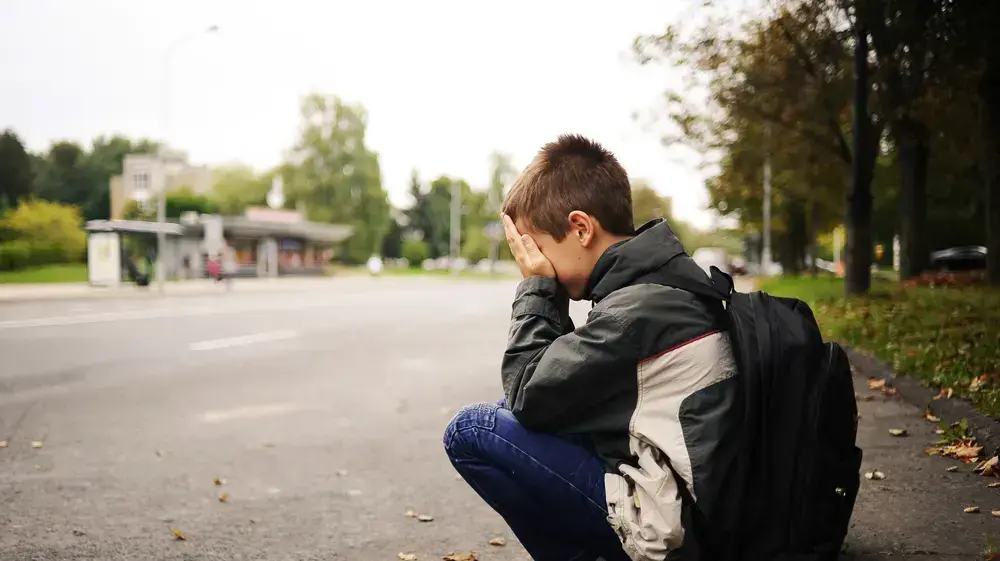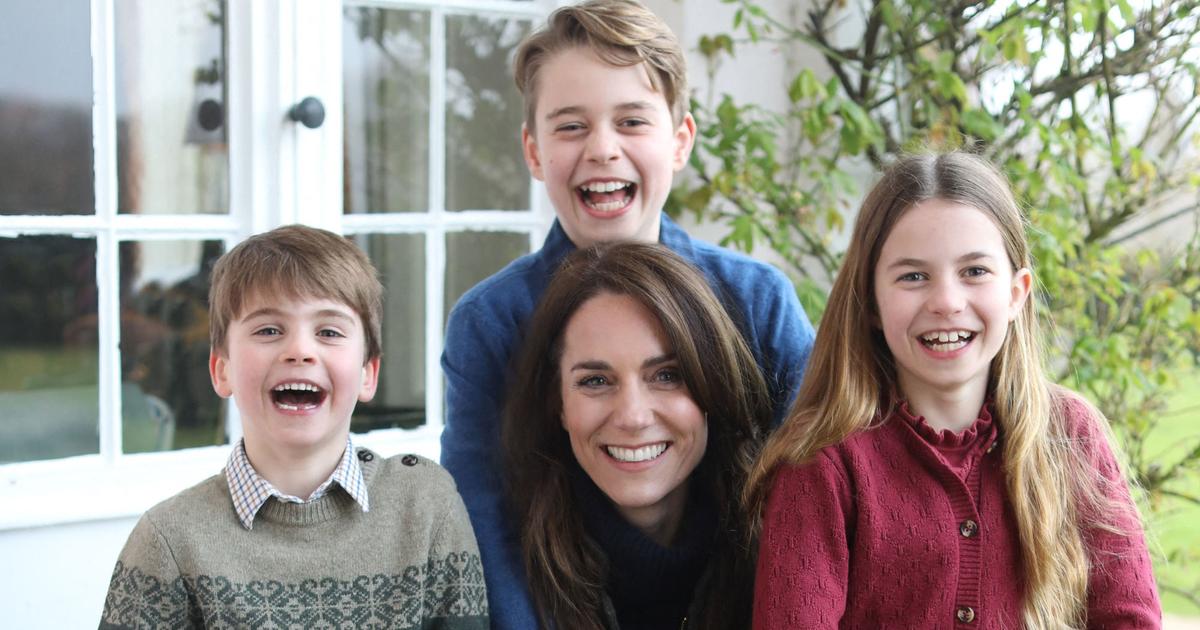Enlarge image
Children's photos: dealing with social media without demonization
Photo: Marko Geber / Getty Images
If, as a parent in Germany, one longs for angry disparagement, this problem can be easily solved: You simply post photos of your children on social media. The younger, the more reliably people emerge who moralizing, condescending or indignant revile parents who post their children. The tone and content often show how convinced these people are of the uniqueness of their position. For this reason alone, it is worth taking a closer look.
However, it should expressly not be about photos and films with which one's own children are mocked, mocked or publicly humiliated. There are such parents, too, and they really deserved their one day deportation to the hopefully bright white tiled, loveless and wifi-free retirement home without any family visit. No, an alleged, unfortunately often heard parental law is to be analyzed here: »Photos of children do not belong on the Internet«. You have to take a few steps back to get the ideological background into the picture. Because all questions that have to do with reproduction and parenting are still strongly patriarchal in the 21st century, it is sometimes just a little more difficult to recognize (for some).
Patriarchy literally means "patriarchy", but today it is also understood that social structures are more useful to men than women.
This is, for example, the main reason why exactly zero out of thirty CEOs of DAX companies in Germany in 2021 will be women.
Or why the splitting of spouses - a structurally misogynist hobby of the CDU / CSU - a single-earning man including a wage-free wife with a salary of 45,000 euros per year pays significantly less taxes than a single mother with two children.
Mothers are noticeably more heavily criticized than fathers
An essential pillar of patriarchy is social pressure in the form of shame, which in most cases affects women.
In the technical language that spilled over from the USA to Europe for moral questions of Internet time, this mechanism is called »Public Shaming« or simply »Shaming«.
I find it difficult to find a group that is publicly shamed more often, more violently and more relentlessly than mothers.
Regardless of the behavior or non-behavior.
Too many people, absurdly, understand the mere portrayal of other ways of life as an attack on their own life and their own decisions.
more on the subject
Messenger founder Pawel Durow: The Telegram billionaire and his dark empireBy Christina Hebel, Max Hoppenstedt and Marcel Rosenbach
Smarter through reduction: Why you shouldn't do anything today (except read this text) By Jurek Skrobala
WhatsApp boss on new legislative initiative: "That would endanger the safety of all of our users" An interview by Max Hoppenstedt and Judith Horchert
Photos of children on WhatsApp and Facebook: What parents are allowed to post - and what not by Sarah Wiedenhöft
This is where the patriarchal baby photo circle joins, because as for many other things, mothers are noticeably more heavily criticized than fathers for taking photos of children online. This may be related to the fact that, on average, mothers talk about their children more often on social media. But even under baby postings from fathers you can regularly read attacks against the associated mothers - here at the latest it becomes clear how patriarchal the discussion about photos of children on the Internet is. Namely, often as a further reason to make mothers feel guilty, to give them the feeling that they are not allowed to do what they want. Rather, they would kindly have to adhere to all possible rules of outsiders, because they have an obligation for the commentators' very personal best interests.
Of course, there are sensible arguments against the publication of photos of children on the Internet. However, there are arguments that only seem sensible at first glance and that shimmer between the two poles. The radical anti-children's photo group often insists on the rights of the children themselves, especially their personal rights.
That is not a bad argument in itself, but it does seem incomplete. Every day, parents decide dozens of things for their children that influence, shape and change their lives. For or against a vaccination, for example, which can be life-saving or have side effects. What the child eats and what not, where it is allowed to go, which social, religious and ideological rules it has to follow and so on and so forth. The child's fundamental rights are not endangered or restricted if the parent makes the decision to post a photo on the internet before the child is able to give consent.
After all, the decision to take part in road traffic with the child is seldom openly criticized - it has been proven to be life-threatening.
It is okay for parents to decide for their children, that is even their job within the framework of the law.
Do you want to align your everyday life with the worst possible?
The same is true of the widespread fear that published photos of children would be misused by pedophiles. This fear is technically not unfounded, and digital publishing usually means losing some control over the published work. But another question arises, and in my opinion a bigger question: Would you like to align your digital everyday life, your online life, your life as a whole to the worst possible case? Everyone can and should answer that for themselves, but it is illiberal to try to impose this decision on others.
If you check out the related comments on social media, it gets even more bitter. Here, this argument often leads to the perpetrator-victim reversal. It is often threatened that the parents who publish children's photos are to blame if the photos appear on pedo-criminal websites. This is about as bad and wrong as telling a woman that she is responsible if she is sexually molested because she is wearing a mini skirt.
Finally, the argument that one could at some point later reconstruct the children's lives and even attack them for it is based on false assumptions.
For one, you don't need baby photos to analyze the lives of parents and their children on social media.
On the other hand, it is obvious that toddlers cannot help their parents' lives.
If you don't want to understand that, you will definitely find a point of attack, photos are irrelevant.
The maximum cross-check has long since taken place: Photos of Federal Chancellor Angela Merkel are circulating online as a young woman doing nudist bathing.
This is uncomfortable and undoubtedly nasty from the publisher - politically, however, it has done no harm to them.
Orientation in about all life questions
An interesting aspect of the child photo debate, a bit aside from patriarchal mechanisms, is built into social media almost ex works.
They are person-related; they essentially function via leading figures.
That's why influencers have grown so big in recent years.
People use the internet to find orientation on almost all life questions.
But right here is a predetermined breaking point - because many who shape social media with their popularity are faced with completely different problems.
Between star stalking, kidnapping scenarios and politically motivated attacks, prominence brings with it a multitude of dangers for children, to which normal users are not or less often exposed.
Specifically, this means that it can objectively be very advisable for the prominent person X not to show the children on the Internet - but for the non-prominent person Y it is completely okay.
Unfortunately, this ability to abstract is not part of the standard equipment of debates on the Internet.
Taking it further, it would help to partially solve the problem.
advertisement
Sascha Lobo
Reality shock: ten lessons from the present
Published by Kiepenheuer & Witsch
Number of pages: 400 pages
Published by Kiepenheuer & Witsch
Number of pages: 400 pages
Buy for € 22.00
Price inquiry time
07/28/2021 12:16 p.m.
No guarantee
Order from Amazon
Order from Thalia
Order from Weltbild
Product reviews are purely editorial and independent.
Via the so-called affiliate links above, we usually receive a commission from the dealer when making a purchase.
More information here
Namely, the social problem of a looming child aversion on the Internet.
I do not want to assume that the anti-children's photo group is in principle hostile to children; most of these people feel that it is exactly the opposite.
But their often aggressive arguments ultimately lead to a digital world without children.
I believe this form of blanking can be harmful.
Representation, presence in public is one of the most important building blocks for the further development of society, be it culturally or politically.
What you don't see is discussed less often and appears less relevant, this is how the social media world works.
No universal, only correct answer
In Scandinavia or Italy, in countries that are clearly more child-friendly than Germany, there is usually a freer approach to depicting children on social media.
They learn right from the start - whether with themselves or with their siblings - to deal with social media without demonization.
I think it is essential to teach future generations that the world and the digital world is not a dream, despite all the difficulties that exist here and there.
Because fear is a disastrous advisor here too.
In my opinion, there is no generally valid, single correct answer to the question of whether parents should publish their children on the Internet or not.
It is the personal decision of both the parents and the children themselves, once they have developed a sufficient understanding.
It's okay not to put a pixel of your own children online - and also to flood your public Instagram account with three hundred baby videos every day.
Also all mixed forms, like making the children's faces unrecognizable or only showing them from behind or from a distance or whatever and whatever.
Nobody has the right to judge others here.
The only question that should be relevant here: Do all those involved who are capable of communicating feel comfortable with it?
If that is the case, any form of "shaming", condescending rebuke or even threats is nothing but patriarchal morality.







